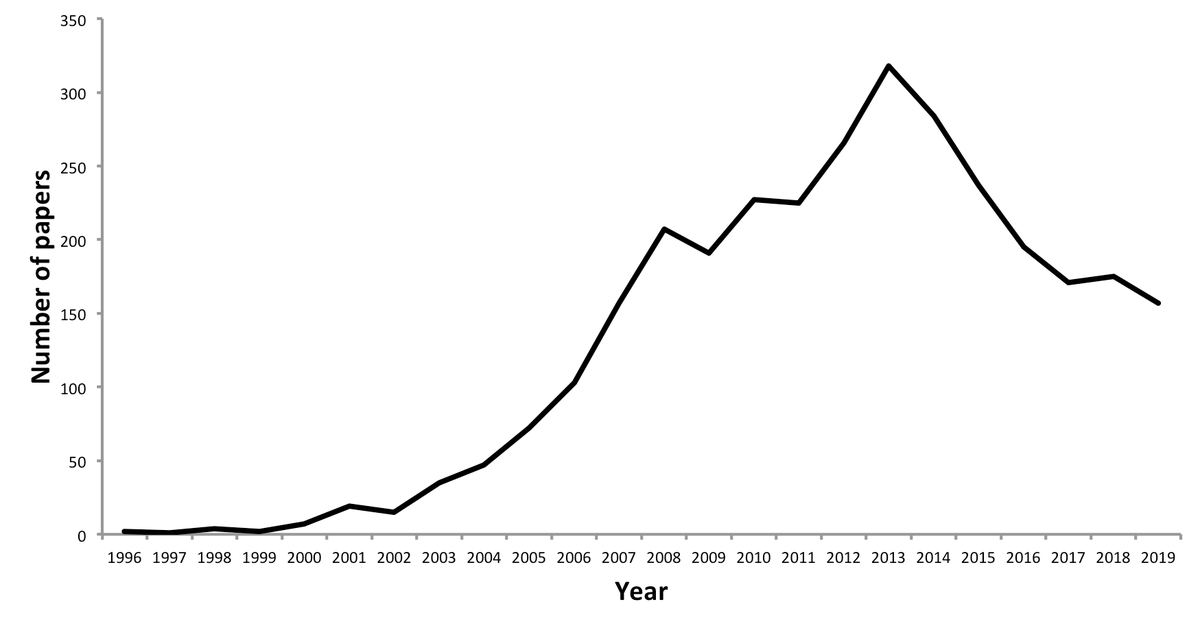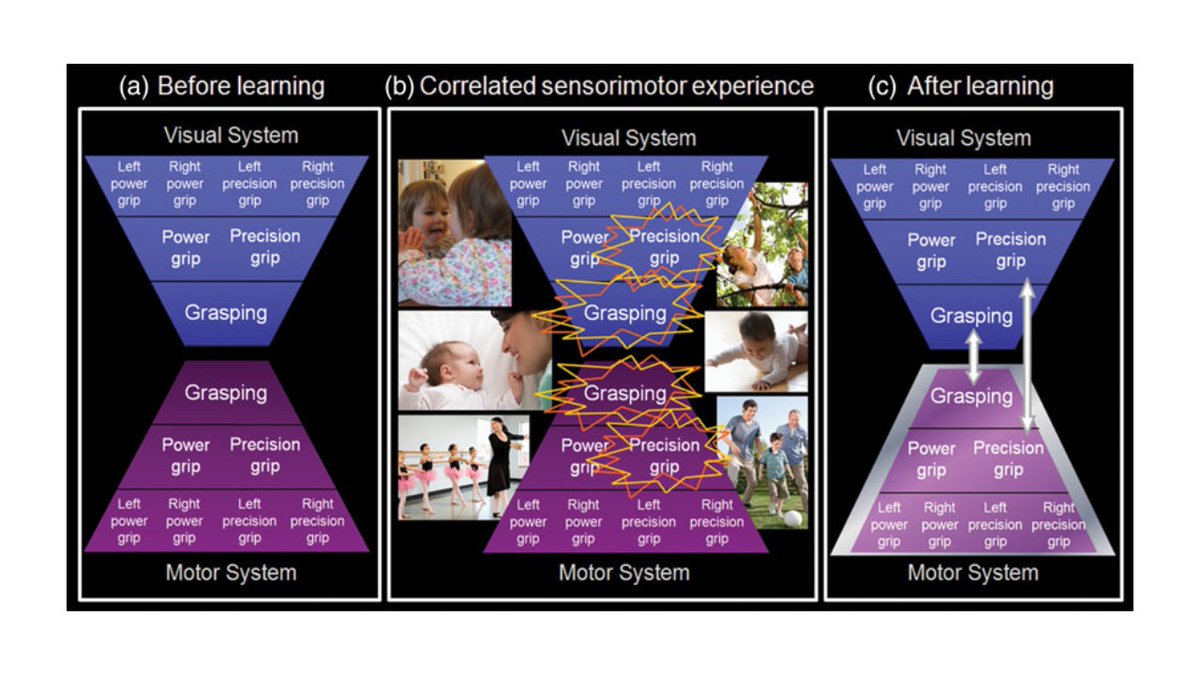What happened to mirror neurons? New preprint with @drccatmur No. of papers 1996-2019 including “mirror neuron” in the title, abstract, or keywords (Scopus, 12th May 2020) https://psyarxiv.com/dtnqg/ Thread
Succinct review of research in the last 10 years on the role of mirror neurons in action understanding, speech perception, imitation, and autism - and on the evolutionary-developmental origins of mirror neurons.
Action understanding - Multivoxel pattern analysis, patient studies, and brain stimulation suggest mirror neuron brain areas contribute to low-level processing of observed actions, e.g. distinguishing types of grip, not inferring actors’ intentions.
Speech perception – It's still not clear whether mirror neurons play a specific, causal role in speech perception, but there's compelling evidence for the involvement of the motor system in the discrimination of speech in noisy conditions.
Imitation – There's strong evidence from patient, brain stimulation and brain imaging studies that mirror neuron brain areas play a causal role in the copying of body movements.
Autism – Studies using behavioural and neurological measures have tried and failed to find evidence supporting the “broken mirror” theory of autism. @antoniahamilton e.g. https://www.sciencedirect.com/science/article/pii/S1878929312000837
Where do mirror neurons come from? Research on evolutionary-developmental origins confirms the importance of domain-general visual-motor learning, rather than canalised visual-motor learning or motor learning alone. http://users.ox.ac.uk/~ascch/Celia's%20pdfs/9%202014%20Cook%20et%20al%20BBS.pdf
On development, we highlight excellent work from Virginia Slaughter's lab in Brisbane on (the absense of) neonatal imitation, e.g. https://www.sciencedirect.com/science/article/pii/S0960982216302573
... and a fascinating study led by @carinadeklerk on the way that imitation by mothers fosters the development of imitation in their infants https://onlinelibrary.wiley.com/doi/full/10.1111/desc.12771
Mirror neurons should not be tarnished. The results of careful empirical research were bound to be disappointing relative to the more grandiose claims, but recent work encourages further system-level analysis. Ask what they do as parts of systems, not 'all by themselves'.

 Read on Twitter
Read on Twitter




